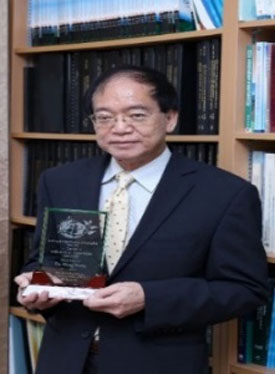Keynote Speaker

Prof. Ming Hung Wong
Advisor/Research Chair Professor (Environmental Science), The Education University of Hong KongSpeech Title: The Roles of Urban Wetlands for Water Purification, Biological Conservation, and Aquatic Production: The Case of Hong Kong, South China
Abstract: Coastal wetlands of Hong Kong have contributed significantly to serving as an essential site for cycling of different elements, improving water quality, flood water storage, protection of erosion, biological productivity, and conservation, etc., citing Mai Po Marshes (RAMSAR site), located at the northwest of Hong Kong as an example. Urban centers generated many persistent toxic substances (PTS), including heavy metals, persistent organic pollutants, and emerging chemicals of concern due to various anthropogenic activities. More recently, wetlands have been built to enhance purifying wastewater, biological conservation, and aquatic production. This presentation focused on the most common PTS encountered in Hong Kong, their biogeochemical processes in the urban ecosystem, their removal efficiencies in different types of sewage treatment plants, and potential adverse effects on the wetland habitats, which might threaten the endangered species (e.g., blackface spoonbill) visiting the RAMSAR site. The roles of constructed wetlands for treating wastewaters (focusing on PTS), providing habitats for a wide range of animals, improving scenic values of waterways, and for environmental education in this densely populated city are reviewed. The information included in this presentation is based on the results of a few research and consultancy projects supported by the Hong Kong Research Grants Council, the Environmental Conservation Fund (ECF) of the Environmental Protection Department, and the Drainage Services Department of the Hong Kong Government.
Biography: Professor Wong is a Foreign Member of the Russian Academy of Sciences, a Member of the European Academy of Sciences and Arts, and Chang Jiang Chair Professor of the Ministry of Education, China. He served as the Editor-in-Chief of ‘Environmental Geochemistry and Health’ (Springer Nature) for 20 years (2002-2023). Professor Wong was the Coordinator of Central and North-East Asia of ‘Regionally Based Assessment of Persistent Toxic Substances’ and a Panel Member (of 3 experts) of ‘Chemicals Management Issues of Developing Countries and Countries with Economies in Transition’, sponsored by UNEP/GEF, during 2001-2003 and 2010-2012, respectively. His research areas included ‘Environmental toxicology’; ‘Ecological restoration’; and ‘Resource reuse’. He has published over 850 SCI papers. In addition to his PhD (Durham), he was awarded two higher Doctoral Degrees based on published papers in 1992 and 2004: DSc (Durham) and DSc (Strathclyde). Recently, he has been awarded an Honorary DSc from the Southern Federal University, Russia (31 May 2024), in recognition of his involvement as the Lead Scientist in the Mega Project on Bioremediation of Polluted Ecosystems sponsored by the Russian Government. Professor Wong is ranked 6th for 3 years and 8th for 2 years (career-long ranking) in Environmental Science according to the World’s Top 2% Scientists (Stanford University, 2020-2024).
